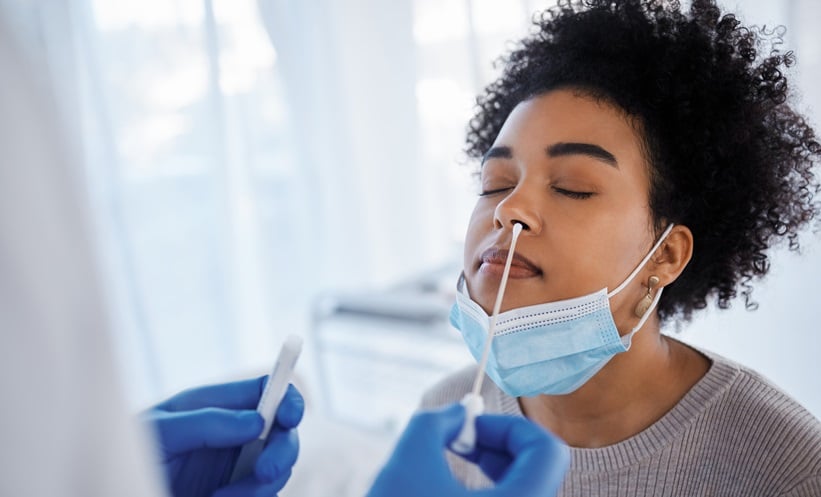GROUNDBREAKING research from Emory University has revealed that autoantibodies found in the nasal cavity may provide a critical defence against severe COVID-19 symptoms. The study suggested that these nasal autoantibodies could serve as a predictor of disease severity, potentially guiding more personalised treatment options, particularly for high-risk individuals.
The 2-year study followed 125 patients with COVID-19 with varying disease levels, from mild to severe. Researchers examined antibodies in both blood and nasal airways, observing that over 70% of patients with mild or moderate COVID-19 had specific autoantibodies in the nose. Surprisingly, these nasal autoantibodies were associated with fewer symptoms, improved antiviral immunity, and faster recovery times. This contrasts with autoantibodies found in the blood, which have been linked to severe outcomes in past studies. “Generally, autoantibodies are associated with pathology and a negative prognosis, causing increased inflammation that would indicate more severe disease. What’s interesting about our findings is that with COVID-19, it’s the opposite,” explained Eliver Ghosn, Lowance Center for Human Immunology and Emory Vaccine Center, Atlanta, Georgia, USA, and lead researcher of the study.
The study also introduced FlowBEAT, a new biotechnology tool developed by Ghosn’s lab to measure nasal autoantibodies more accurately and efficiently. FlowBEAT allows researchers to test for multiple antibody types in a single nasal swab, significantly enhancing diagnostic sensitivity. This innovation could revolutionise testing for other respiratory illnesses, such as influenza and respiratory syncytial virus, providing a quick, scalable method to evaluate a patient’s immune response at the infection site. Ghosn and his team believe that if nasal autoantibodies prove protective against other viral infections, this could transform our understanding of respiratory immunity. In the meantime, Emory’s team is working with the university’s patent office to develop a diagnostic tool that utilises “leftover” nasal swab samples from standard COVID-19 tests.
This discovery offers hope for high-risk individuals, for whom early intervention with treatments like Paxlovid could mitigate severe responses, highlighting the nasal cavity’s unique role in the body’s immune response.
Reference
Babcock BR et al. Transient anti-interferon autoantibodies in the airways are associated with recovery from COVID-19. Sci Transl Med. 2014;16(772):eadq1789.






